
The metaphor of "the wall" is not entirely difficult to parse, especially after having been lead up to it by the previous songs on the album. I've received much e-mail asking me to explain the metaphor in full, but in all actuality, there is little address. The album is so grand and intricate that many people are intimidated by the thought of interpreting the main symbol of the piece, thinking that there is more to the simple image than meets the eye. While some might argue that the metaphor is incredibly tricky, I believe that it's the very opposite. If anything, the main idea of the "wall" is quite simple. In the physical world, a wall is simply a collection of material that is used as a partition to separate two or more things. The metaphor of the wall in the album and in life holds to this definition. Because life is so daunting at times, we all have a tendency to distance ourselves from it. Television takes our minds off it, alcohol dulls it, drugs alter the reality of it; in each example, we use everything at our disposal to prevent us from truly connecting with our feelings, from fully experiencing life as both good and bad. As a society, and equally as humans, we have been conditioned to distance ourselves from pain, even if that pain helps us in the long run. As a result, we create metaphorical bricks in our minds for every disturbing situation in an attempt to distance ourselves from being hurt again, from feeling raw and vulnerable. Over time, our personal walls in our minds grow higher and we become more cynical, more jaded towards life and our connections with it. In a sense, every brick is another defense mechanism, something that dulls the pain of a bad situation and disconnects us from ever having to feel that way again. Simply put, the metaphorical wall is nothing more than its real counterpart: a collection of bricks that separate us from something else. Just as the walls of your house protect you from the environment (both rain and sunshine, the good and bad), the mental walls we erect protect us from being completely vulnerable to Life (once again, both the good and bad).
Such is the state in which we find young Pink in "ABITW 1," coming straight from the realization of life's burden ("the Thin Ice") into an awareness of his wall without a breath in between. The transition even hints at a subtle nihilism finely woven into the album. There is no decision between one realization and the next. From the moment Pink's dad flew "across the ocean" (both to war as well as to death, recalling ideas of the bodies of water separating the living and the dead such as the six rivers of the Greek and Roman Underworld), Pink's wall had already been started without his consent. It most likely is started before he is even fully cognizant of being an entity unto himself, his father gone and dead before Pink was born. "All in all," Pink muses, "it was just a brick in the wall" (emphasis mine). By referring to the brick(s) in the past tense, Pink displays a nihilistic resignation to accept his fate. His wall was started in the past and it's something that he cannot change, or so he believes. In other words, he believes that he was born to his wall which was created the very second his father left and was killed; he was conditioned to continue adding to his wall from birth, unable to ever escape the Sisyphus-ian burden sparked by the loss of his father.
Not only does "ABITW 1" introduce the idea of the metaphorical wall, it also establishes the musical thread used by the rest of the "Brick in the Wall" songs. The use of this common guitar riff as well as the deviation from it in later songs reflects the changing personality of Pink throughout the first half of his journey (disc 1). It can be argued that the repetitious D note played with little derivation in this first song is directly proportional to Pink's persona at the time. Just as the repetitious note gradually emerges out of the final chords of "the Thin Ice," Pink slowly emerges into self-awareness, realizing the burden that has been placed on him by the very act of living while also continuing to construct his wall out of the tedium of his life. It's almost as if he adds a brick with each note, one after the other after the other; each brick is all the same in this monotonous life. Yet such monotony is still unable to repress brief moments of emotional outburst. The absolute bitterness in Waters' voice as he sings  "Daddy, what d'ya leave behind for me?" coupled with the biting accent of the second guitar really illustrate the raw emotions Pink is feeling even at this early age while also foreshadowing a time when these emotions will explode. It's also interesting to note the anger in his voice when he asks his father what was left behind, aside from the "snapshot in the family album." It's almost as if young Pink is undergoing the psychological stages of grief when he unjustifiably lashes out at his father's memory. It's similar to when one loses a loved one and selfishly blames the person for dying or blames God or some higher power for taking that person from their lives. Although such anger is pointless and in a sense selfish, it is nevertheless crucial for the healing process. While one might argue that Pink proceeds beyond blaming his father in particular, he arguably is never able to move past his bitterness over his father's death. As he grows older, he continually points fingers at England, the War, Hitler, and all involved until he is consumed by that anger and ultimately transformed by it into the very thing that he hates most…but we won't get to that until the second disc.
"Daddy, what d'ya leave behind for me?" coupled with the biting accent of the second guitar really illustrate the raw emotions Pink is feeling even at this early age while also foreshadowing a time when these emotions will explode. It's also interesting to note the anger in his voice when he asks his father what was left behind, aside from the "snapshot in the family album." It's almost as if young Pink is undergoing the psychological stages of grief when he unjustifiably lashes out at his father's memory. It's similar to when one loses a loved one and selfishly blames the person for dying or blames God or some higher power for taking that person from their lives. Although such anger is pointless and in a sense selfish, it is nevertheless crucial for the healing process. While one might argue that Pink proceeds beyond blaming his father in particular, he arguably is never able to move past his bitterness over his father's death. As he grows older, he continually points fingers at England, the War, Hitler, and all involved until he is consumed by that anger and ultimately transformed by it into the very thing that he hates most…but we won't get to that until the second disc.
The movie sequence for "ABITW 1" is just as haunting and subtle as the song itself. While the songs never really give Pink an age, the movie portrays Pink as being around 5 to 7 years of age, making his musical soliloquy all the more valid, psychologically considering that it is around this time that a person's psyche really starts to develop a sense of self. According the DVD commentary, Waters said that the scenes within the church were slightly altered from a real event in his life. As a young child, Waters' grandfather (not mother, as depicted in the movie) takes Pink to the Chapel of the Royal Fusiliers in London to look at the memorial for those fusiliers who lost their lives in World Wars I and II. The event must have left an indelible mark on the young Waters who remembered finding his father's name in a book in the chapel.
 It is interesting to note the bits of metaphorical brick chained to Pink even at this early age. Symbols of the war abound in the model Lancaster Pink plays with, the General Service and Italy Star medals that he wears, even the chapel itself that serves as a memorial for those Fusiliers who lost their lives in the war. Pink's mother, whom we will later discover to be overprotective, is also present as she prays quite possibly for the repose of her husband's soul. Although this simple act of prayer is little indication of the mother's sheltering personality, it does introduce her devotion to her husband which eventually leads to her overprotective attitude towards Pink stemming from the sorrow of losing a loved one and defense from losing another. The next scene of Pink in the playground is, in my opinion, one of the saddest of the film. His longing to have a father, the joy on his face when another child's father briefly "adopts" him by putting Pink on the merry-go-round, and the subsequent sorrow and aching submission on Pink's face when he sits on the swing after the "adoptive" father rejects him; all are played out beautifully in Little Pink's subtle facial gestures. Much like his nihilistic resignation concerning the burden he was born with, Little Pink resigns himself to a lonely swing while watching the other father's push their children on the swing set. The emotion is delicate yet raw, a perfect precursor to unbridled grievousness of "When the Tigers Broke Free, Part 2."
It is interesting to note the bits of metaphorical brick chained to Pink even at this early age. Symbols of the war abound in the model Lancaster Pink plays with, the General Service and Italy Star medals that he wears, even the chapel itself that serves as a memorial for those Fusiliers who lost their lives in the war. Pink's mother, whom we will later discover to be overprotective, is also present as she prays quite possibly for the repose of her husband's soul. Although this simple act of prayer is little indication of the mother's sheltering personality, it does introduce her devotion to her husband which eventually leads to her overprotective attitude towards Pink stemming from the sorrow of losing a loved one and defense from losing another. The next scene of Pink in the playground is, in my opinion, one of the saddest of the film. His longing to have a father, the joy on his face when another child's father briefly "adopts" him by putting Pink on the merry-go-round, and the subsequent sorrow and aching submission on Pink's face when he sits on the swing after the "adoptive" father rejects him; all are played out beautifully in Little Pink's subtle facial gestures. Much like his nihilistic resignation concerning the burden he was born with, Little Pink resigns himself to a lonely swing while watching the other father's push their children on the swing set. The emotion is delicate yet raw, a perfect precursor to unbridled grievousness of "When the Tigers Broke Free, Part 2."




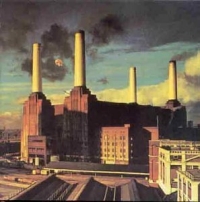

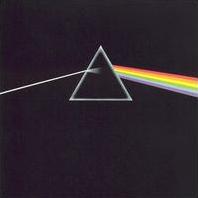
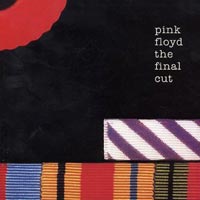
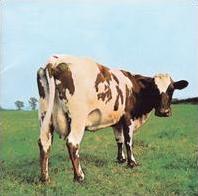
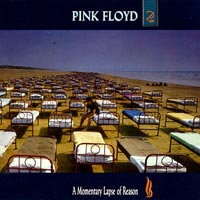
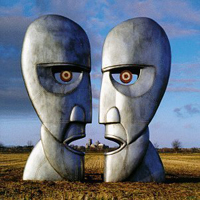
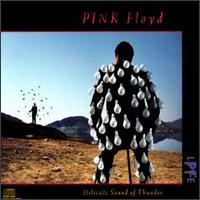




Niciun comentariu:
Trimiteți un comentariu